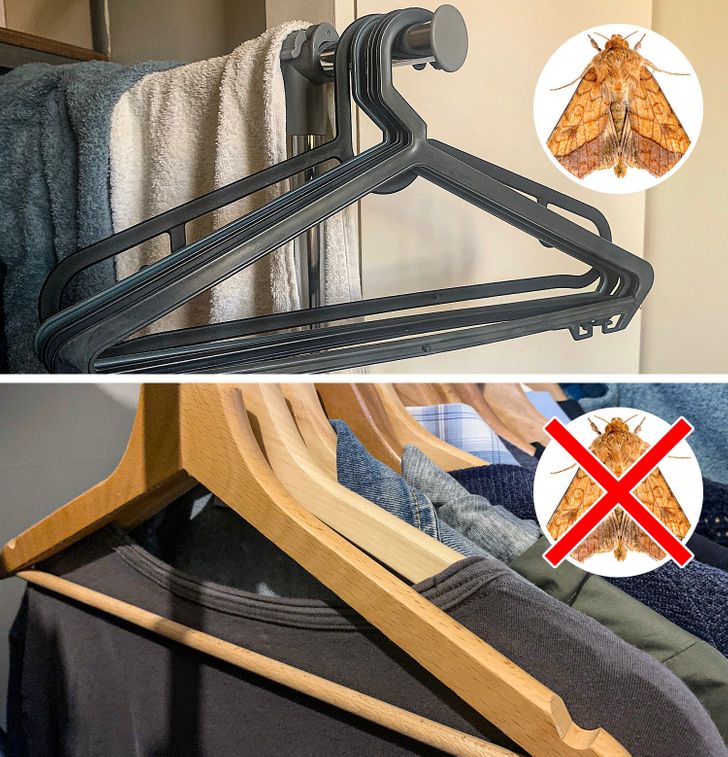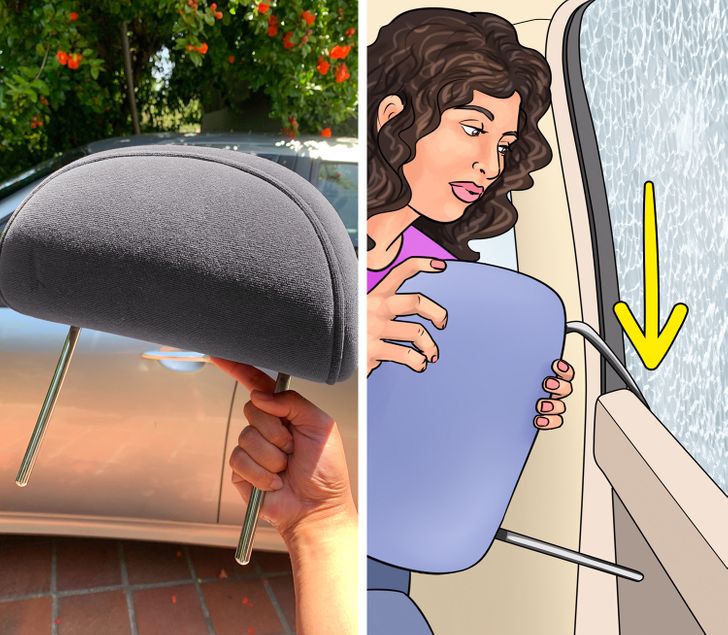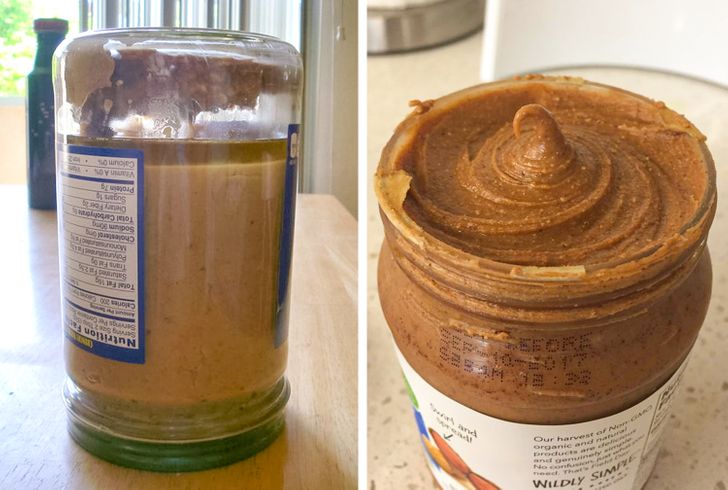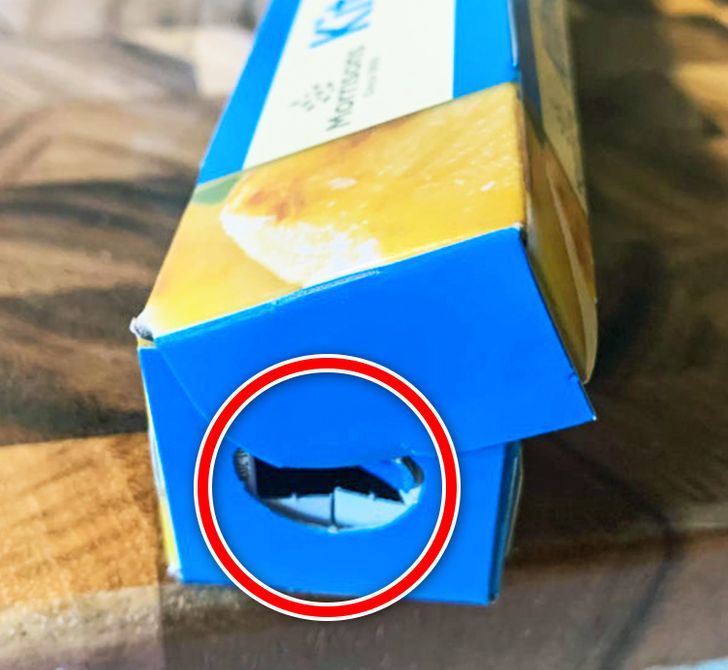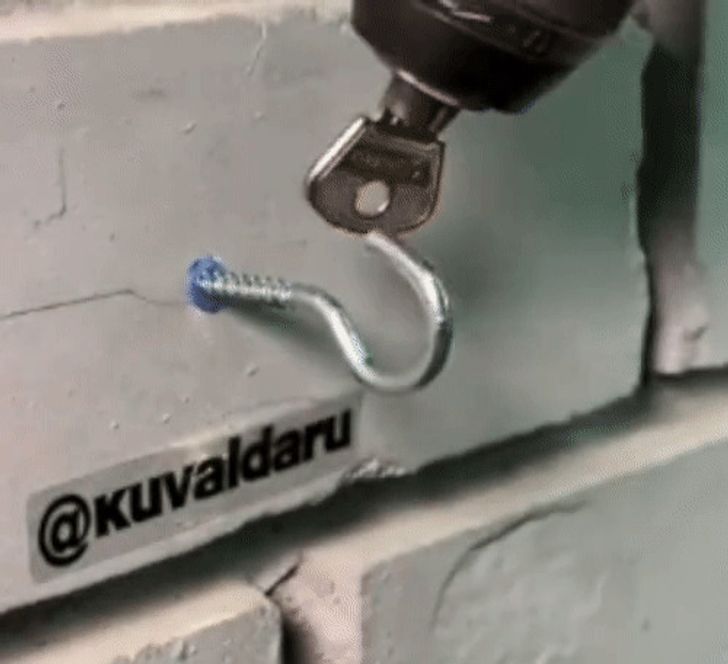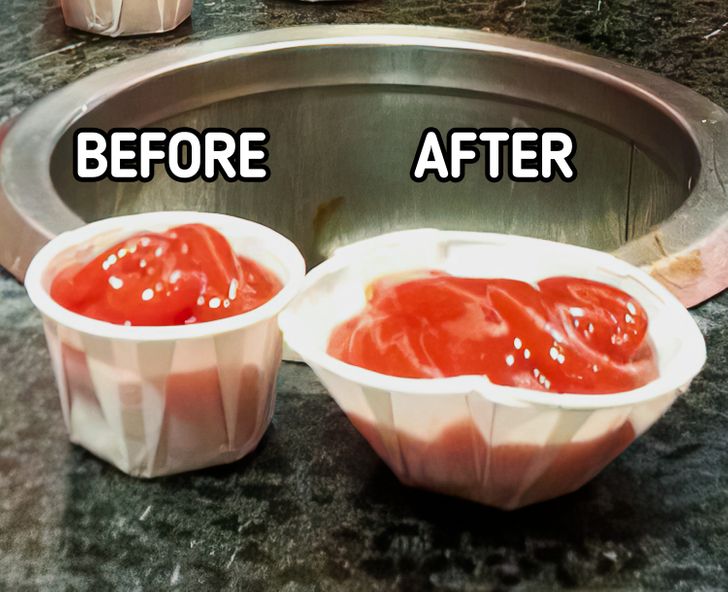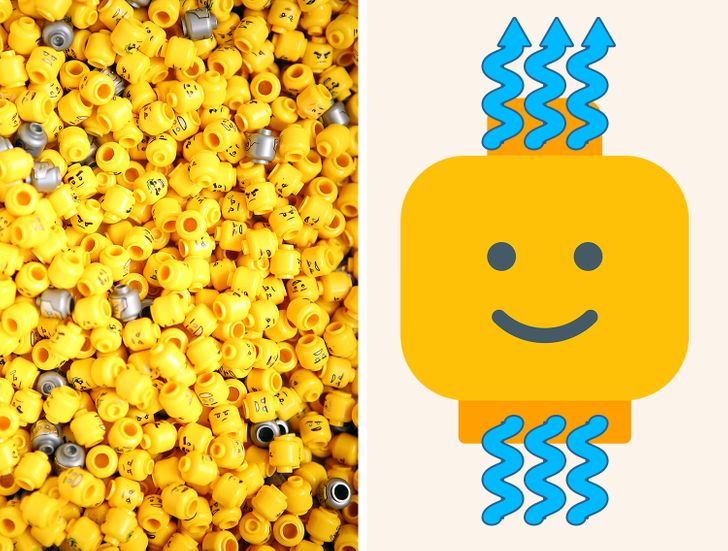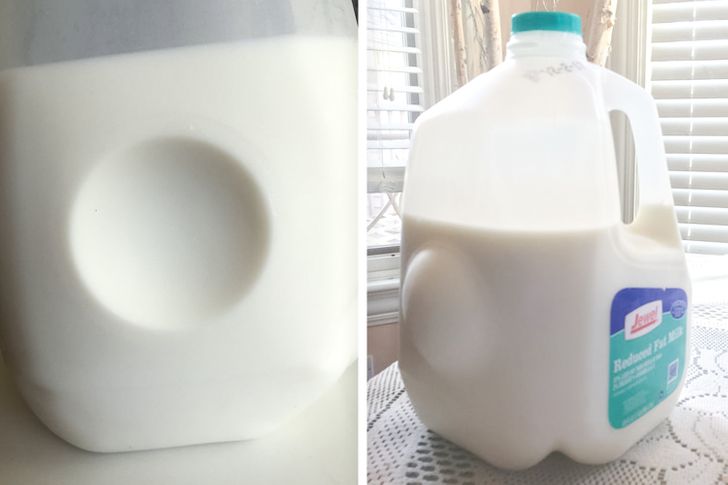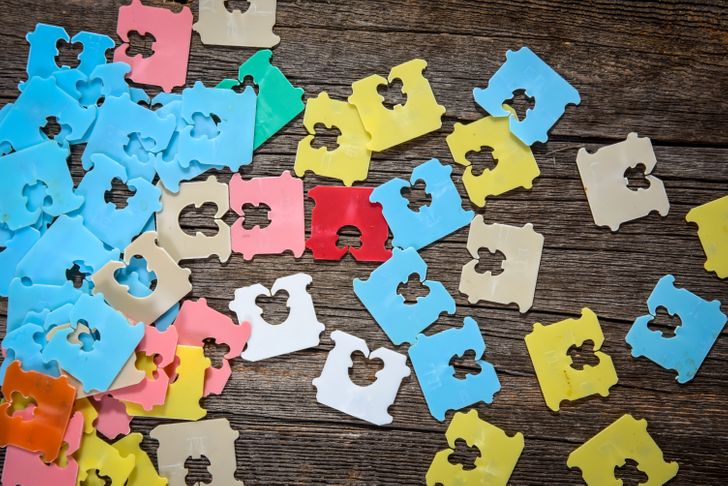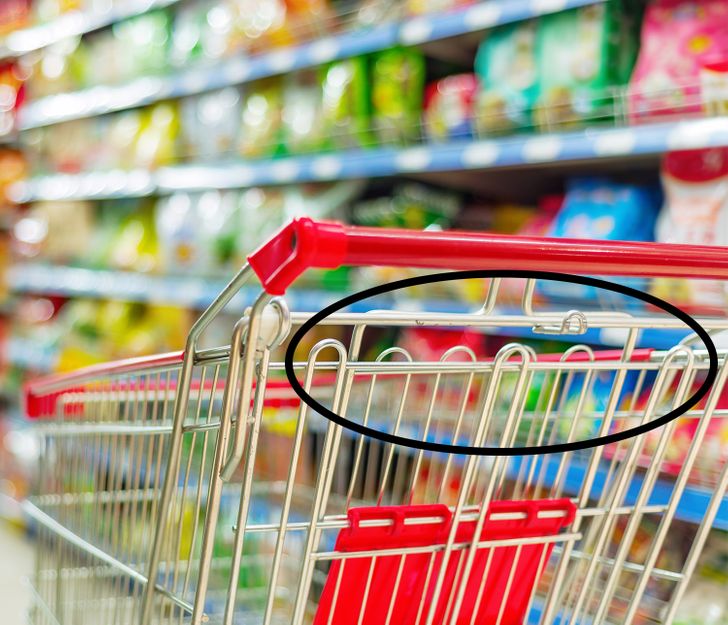I love you bright side your videos and much more I have subscribed your channel 😍😍😍😍😍😍😍😍😍😘😘😘🤩🤩🤩
15 Everyday Things That Have Hidden Tricks and Functions
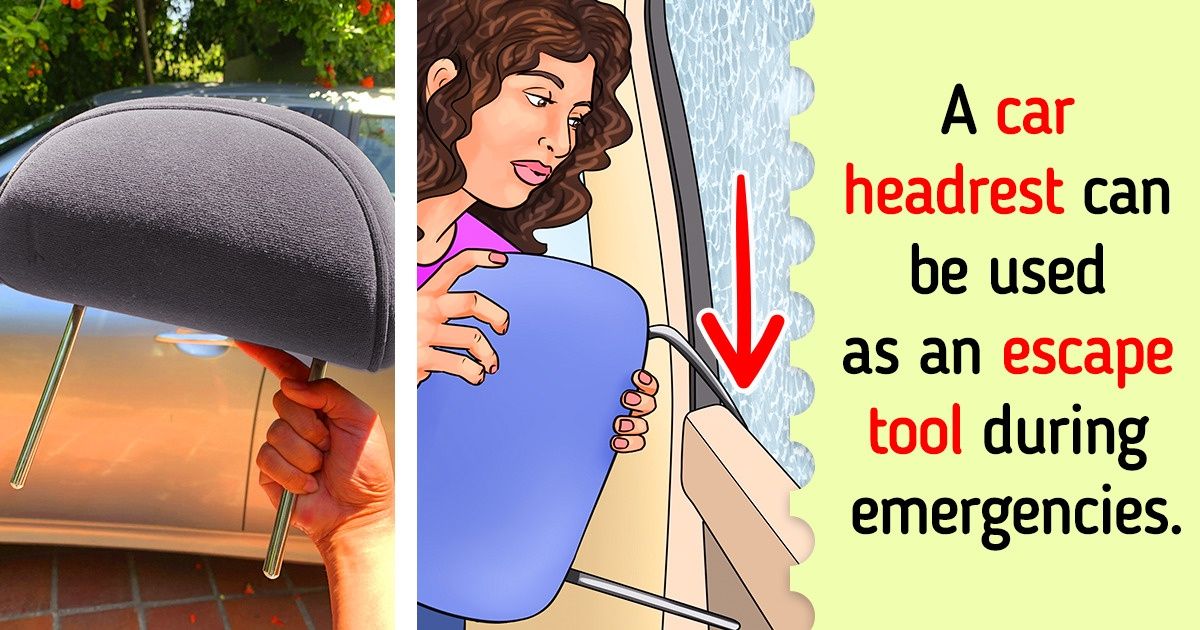
Sometimes our everyday items have pretty useful and brilliant built-in features that we don’t even know exist. For example, there’s a secret trick in foil boxes that prevents the roll from falling out. And the twist ties on your bread can actually tell you how fresh the loaf is.
Bright Side wants to help make life more convenient for everyone, so we’re sharing these amazing hacks and practical tips to help you maximize the full potential of the things around you.
1. Cedarwood hangers help repel moths and other insects.
Mothballs used to be a popular way of keeping insects at bay, but they contain chemicals that may be harmful to our health. Good thing there’s something else inside our house that acts as a natural insect repellent: cedarwood hangers. The scent of the oil in cedarwood deters moths and stops them from chomping on our clothes. But it’s advised to sand the hangers or re-coat them with cedar oil every few months to maintain their pesticide properties.
2. Car headrests can be used to break out of a vehicle in case of an emergency.
Detachable car headrests were not specifically designed for the purpose of breaking vehicle windows, but their sharp edges could be used to smash the glass in case of emergencies. One YouTube video demonstrated the proper way of using the headrest as an escape tool. Instead of banging the edges directly, wedge it between the glass and the window sill, and pull the headrest toward you. This should cause the glass to break, allowing you to slip your way out.
3. Foam in bubble baths help regulate the water’s temperature.
Bubbles act as thermal insulators by blocking the water’s surface and preventing heat loss. One experiment confirmed this theory, and they found that the water with bubbles cooled down at only half the rate of its foam-free counterpart.
4. Peanut butter containers can be stored upside down to improve the spread’s texture.
Most peanut butter products use oils to extend their shelf life, but these oils tend to separate from the solid part and can cause a mess when you try to stir it back in. One way of avoiding this hassle is to store the peanut butter container upside down. This will force the oil to mix itself with the butter, resulting in a smoother, well-blended spread.
5. Cling wrap and foil boxes have push tabs on the sides to prevent the roll from falling out.
Good news: you’ll never have to worry about the entire aluminum foil roll falling out of the box every time you try to tear it. Foil boxes come with these tabs on the sides, which are meant to keep the roll in place. All you need to do is push them before using the foil for the first time, and those ingenious built-in locks will keep the core steady.
6. Keys can be used to drill hooks faster.
Hook screws can be tricky to install, but one simple thing that can help you nail this task is a key. Put the key shaft inside your drill, then hook the screw onto the head. This should provide the support needed to make drilling easier and faster.
7. Colored squares in toothpaste tubes function as marks for manufacturing machines.
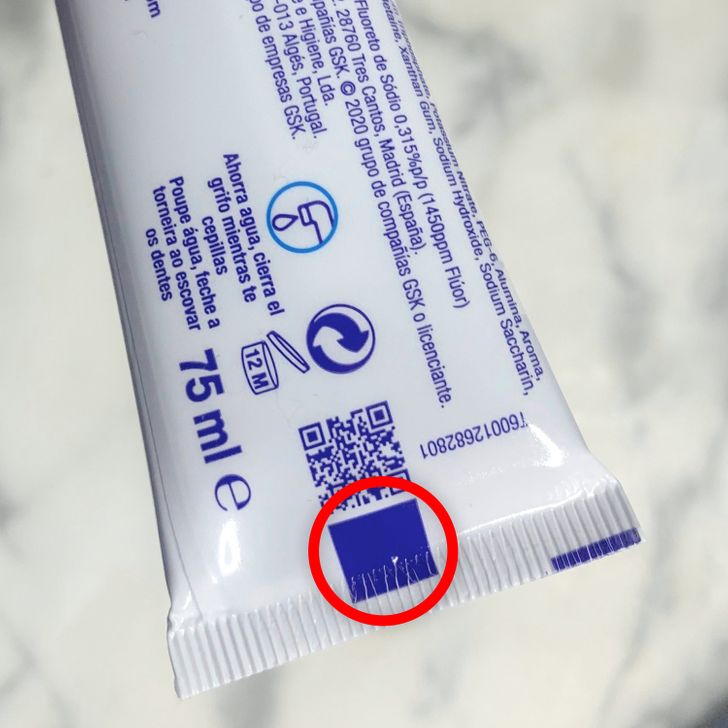
For the longest time, people thought these colored squares indicated whether the toothpaste formula was natural or purely chemical. But the truth is they don’t have anything to do with the paste’s composition. These shapes were placed there to be read by machines during manufacturing, and their main purpose is to indicate which part should be cut, folded, or sealed.
8. Milk cartons are meant to be poured with the lid on top.
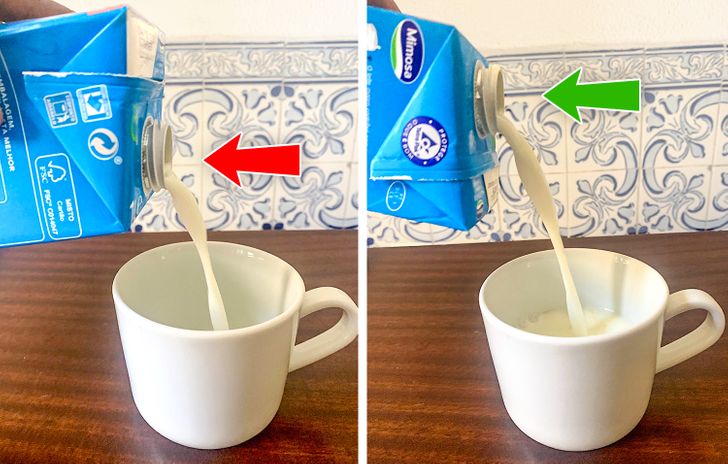
It’s a matter of physics — if you pour with the lid on the bottom and the carton is full, milk comes out from all sides, so it comes out with increased speed. As the liquid flows out, the carton tries to equalize pressure, so it lets air from the outside enter through the opening. The incoming air could disrupt the flow and cause the milk to “spurt.”
Pouring with the lid on top means there’s no pressure or milk from above, and there’s enough space for the air to enter. Doing this will give you a smoother, more continuous milk flow.
9. Condiment cups can stretch up to twice their size.
The pleats around a condiment cup are apparently there for a brilliant purpose: you can make the container expand by pulling and spreading these folds. The cups can stretch up to twice their original size, or even to a mini-plate if you go all out. Not only will you be able to save paper by using one cup for twice as much sauce, but you’ll also have more space to dunk those nuggets or bigger bits of food in.
10. Lego heads are made with holes as a safety feature.
When Lego made their miniature head figures, they kept in mind that some kids like to put stuff inside their mouths. They decided to add holes on top of the heads so that in case a toddler accidentally gets a piece stuck in their throat, air can still pass through and the child will be able to breathe.
11. Zippers on pants have an auto-lock mechanism.
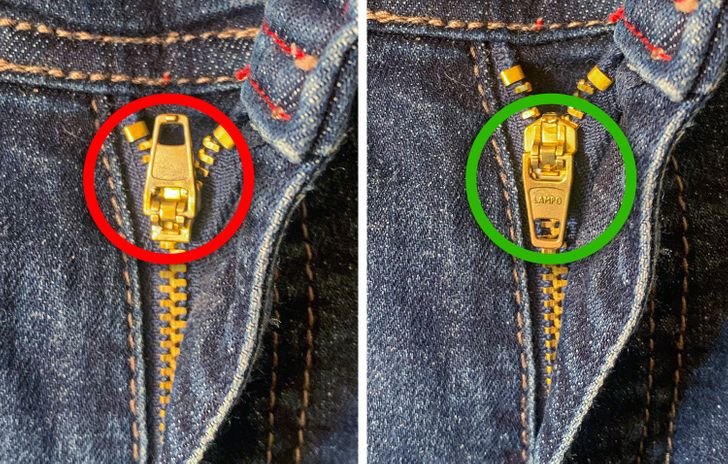
Turning a zipper downward and folding it completely flat will keep it from falling or coming undone. This is due to a small pin that locks between the zipper teeth and the slider whenever it’s placed in that position. Other handles may have different mechanisms, but pulling the zipper up and flipping it down is generally how you keep it firmly closed.
12. The dent on milk jugs was placed there to make the container look full.
Manufacturers often use big molds for these containers because they take into consideration the plastic shrinkage that happens during production. Because of this extra allocation, the jar doesn’t appear full even when there’s a complete gallon of milk inside. To make the packaging acceptable to consumers, they adjust how the volume looks by placing a circular dent on the side.
Other articles point out that these concaved parts have other purposes. When the milk gets old, it produces bacteria, which causes the dent to expand. The crafty design is also a form of structural support. When the jug drops and pressure inside spikes, or when milk expands as it freezes, the dimple will swell to prevent the plastic from breaking.
13. The twist ties and plastic tags used for bread are color-coded based on the day the loaf was baked.
Those colored tags are not just some random design, they actually tell you how fresh your bread is. Each color is assigned to a specific day of the week — blue for Monday, green for Tuesday, red for Thursday, white for Friday, and yellow for Saturday. It appears that bakers’ days off are on Wednesdays and Sundays, as no colors have been designated for them.
This color-coding system was also implemented to make it more convenient for employees to check the shelves for old bread. The colors were also assigned in alphabetical order to make it easier to remember the schedule.
14. Grocery carts have loops for hanging bags with soft items.
Bagging your grocery items can be an arduous task, and soft items like bread, fruit, and vegetables can get lost in the mix and get squashed by the heavier ones. This is where the metal loops in the shopping carts can come in handy.
Hang your plastic bags with the fragile stuff inside, and there you have it, problem solved.
15. The container with the lifted lid on the back of personal care products indicates the expiration date.
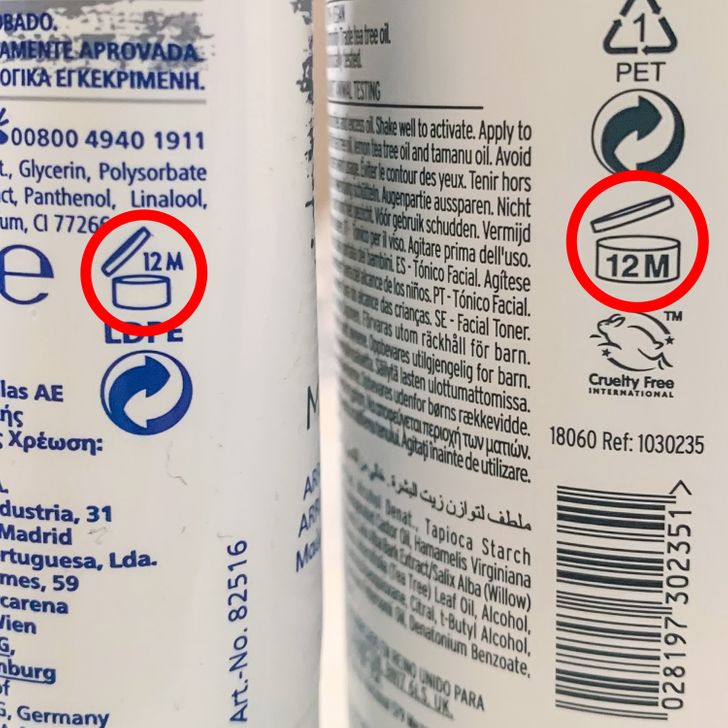
Some manufacturers of hair and skincare products inform us of the time period in which these items are effective or safe to use, and they do it by including this tiny detail in the packaging. The “M” stands for months, and the countdown to the number of months begins after you open that bottle of shampoo or moisturizer.
Which of these points surprised you the most? Are there other secret functions or purposes of everyday items that you’d like to share?
Comments
But I'm boy
Related Reads
I Refuse to Give Up the Passenger Seat for My MIL—She Should Learn Her Place

I Refused to Share My Bank Account Details With My BF—His Response Revealed His True Colors

My MIL Humiliated Me in Front of Family, So I Exposed Her Secret

14 Powerful Kindness Stories That Restored Hope in Tough Times

12 Moments That Show Romance Is Really About Small Acts of Kindness

My Coworkers Excluded Me From Their Group Chat on Purpose—The Real Reason Shattered Me

12 Times Kindness Stopped Damage From Becoming Destiny

I Refused to Let My Sister Make My Wedding About Her Miscarriage—So I Exposed Her Dark Secret

10 Bosses Whose Unrealistic Demands Led to a Disaster

15 Moments That Prove Kindness Holds Strong When Life Hits Hard

10 Teachers Who Learned Life Lessons From Their Remarkable Students

I Refuse to Watch My Teenage Daughter Give Her Entire Salary to Her Boyfriend

